How to propagate sunflowers and grow the gorgeous blooms for free
The expert guide to propagating through both seeds and cuttings


EDITOR’S NOTE: An earlier version of this article included a quote from a purported expert whose credentials we have not been able to verify. The quote has been removed. We regret this lapse in our verification process and have updated our internal protocols to reduce the risk of recurrence.
If there’s one bloom which immediately puts a smile on our faces it’s a sunflower. And as the name may allude to, these flowers love the sun, making them a great plant to grow and enjoy during the summer months.
We’re not the only fans of sunflowers, these blooms are also great at attracting bees, birds and insects into your garden, creating a habitat in which wildlife can thrive.
Now, while you may have considered growing sunflowers from a pack of sunflower seeds, you can also propagate them from seeds and cuttings.
Propagation is one of the best budget garden ideas, as you can essentially grow new flowers or plants for free, or significantly less than buying new plants. Propagating sunflowers is also surprisingly easy, even if you do have to do a bit of preparation to get them ready to be planted. But once you grow one sunflower, you can continue to use its seeds to grow more.
So, if you’re looking to learn how to propagate sunflowers, the experts have revealed their top tips as well as a step-by-step guide.
How to propagate sunflowers
Depending on your garden design or what you’re hoping to achieve, there are several different varieties of sunflower that you can choose from.
There are tall varieties such as the ‘American Giant’ which can grow up to four metres tall. While smaller options such as ‘Big Smile’ which actually isn’t particularly big, at around 30 cm, or the affectionately named ‘Teddy Bear’ which grows to around 60-90 cm, could be great options for smaller outdoor spaces.
Sign up to our newsletter for style inspiration, real homes, project and garden advice and shopping know-how
What you'll need
- Seeds from an existing sunflower or cuttings
- A seed tray; we like this B&Q Verve Grey Seed Tray
- A container or containers depending on the size of the variety that you plan on growing
- Well-draining soil
- Good quality peat-free seed compost; try the Westland John Innes Peat Free Seed Sowing Compost from Homebase
- A trowel; this Rolson 82680 Stainless Steel Hand Trowel from Amazon has plenty of 5 star reviews
- A watering can with a rose attachment; this ACCURATE Watering Can from Amazon is a great price
- Support sticks
How to propagate sunflowers from seeds
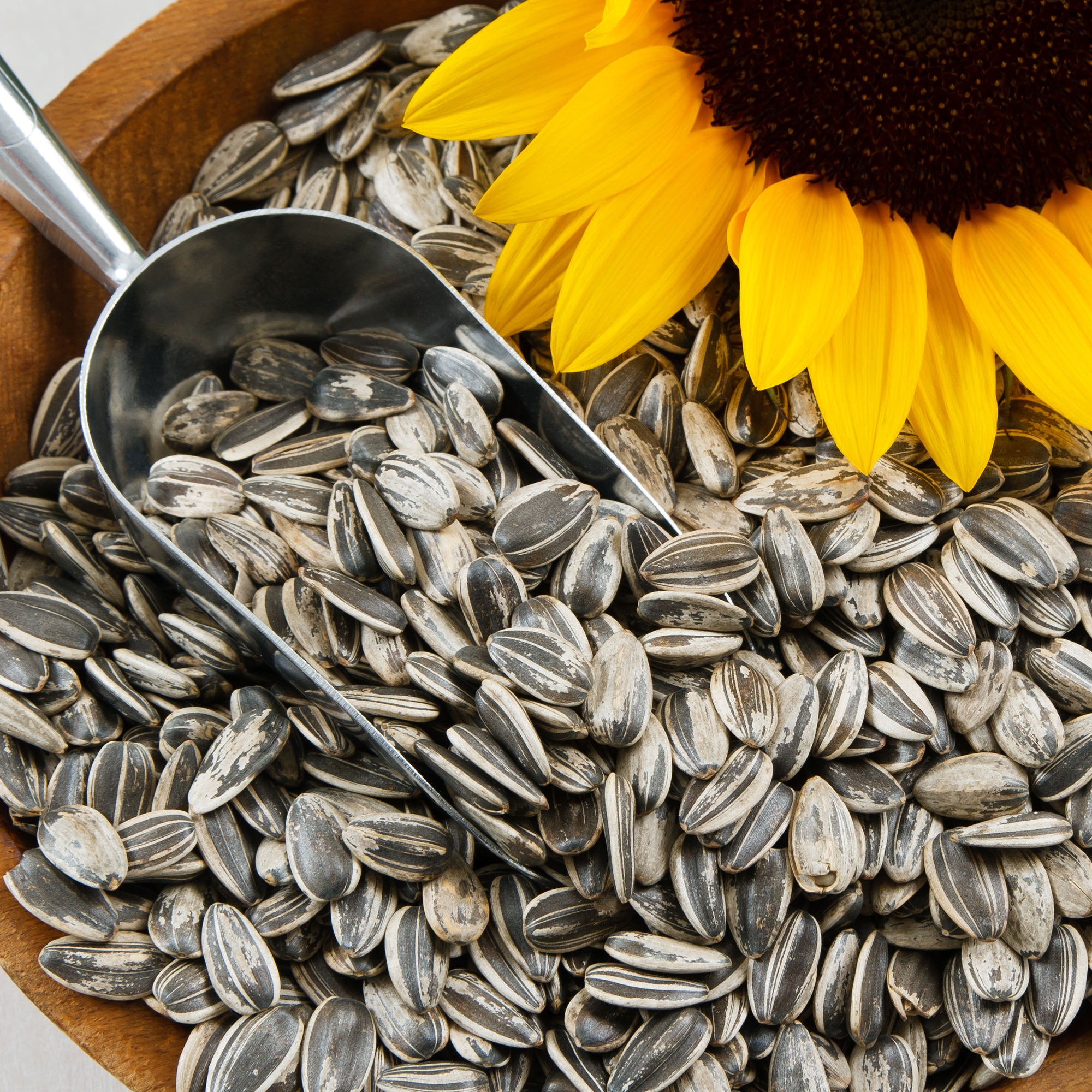
The easiest and most common way to propagate sunflowers is by harvesting the seeds. It does take some patience, as you will need to wait for an existing sunflower to mature fully and for it to stop flowering.
William Mitchell, owner of Sutton Manor Nursery, recommends cutting ‘the flower head off the plant, leaving only a few inches of the stem attached before hanging the flower head upside down in a well-ventilated area for a few weeks to allow the seeds to dry out.’
Once these seeds are completely dry, you can get to work at gently rubbing the seeds out of the flower head. They can then be stored in a dry, cool place until you are ready to plant them.
Preparing to plant the propagated seeds
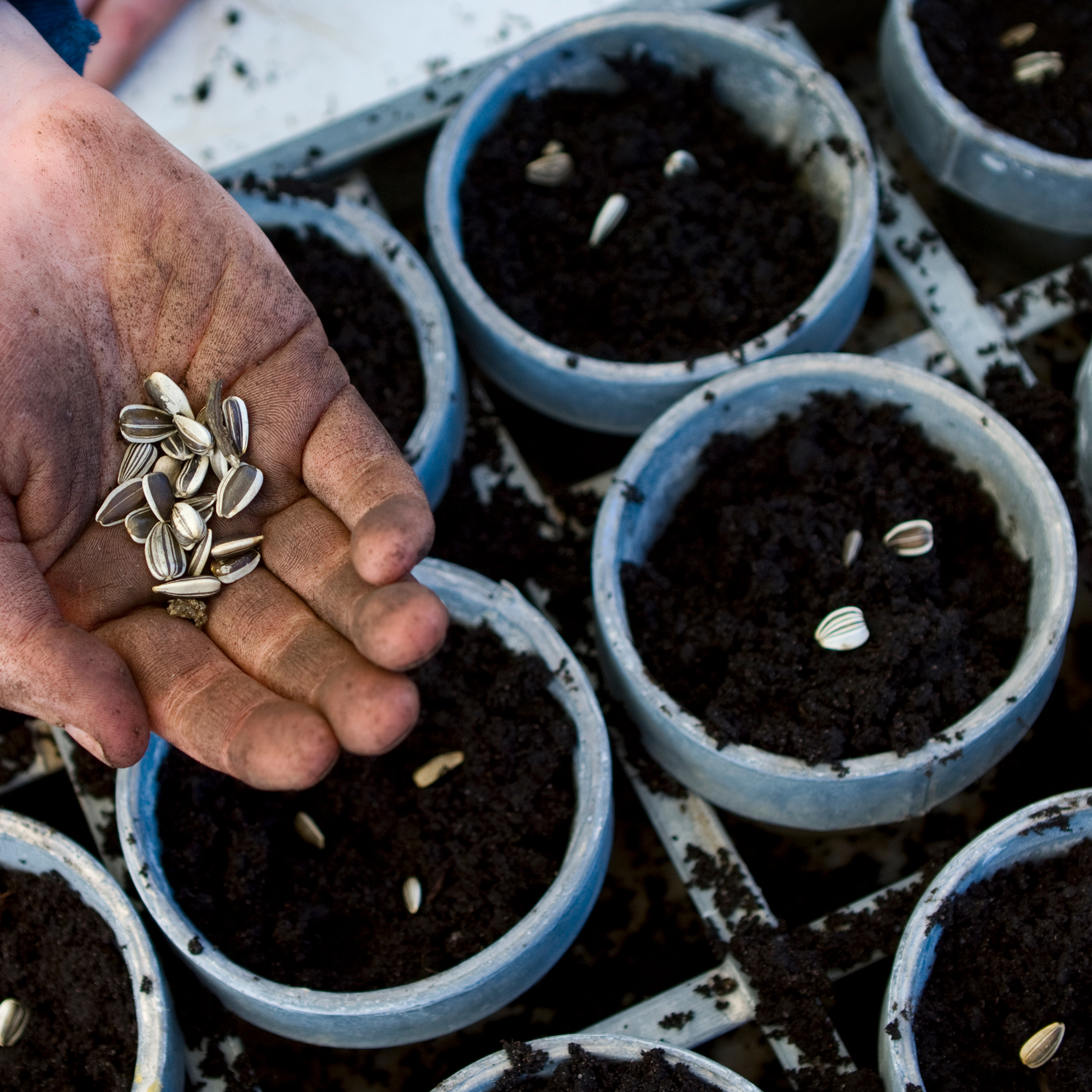
You will need to do some additional prep by growing the seeds into seedlings before you plant them more permanently, either in the ground or in pots.
Start by using a modular, divided seed tray filled with multi-purpose compost. ‘When the seedlings are two inches tall, move them into 9cm pots,’ reveals garden expert Sarah Raven. She also recommends growing your seedlings inside before moving them outdoors.
‘Fill a clean pot with the potting mix and make a hole in the centre, slightly deeper and wider than the plug,' adds Sarah. 'Position the plant in the pot, check the roots are fully covered and tap to settle the soil. Water well and leave somewhere bright but sheltered during the day.'
Planting the propagated seeds in containers or the ground
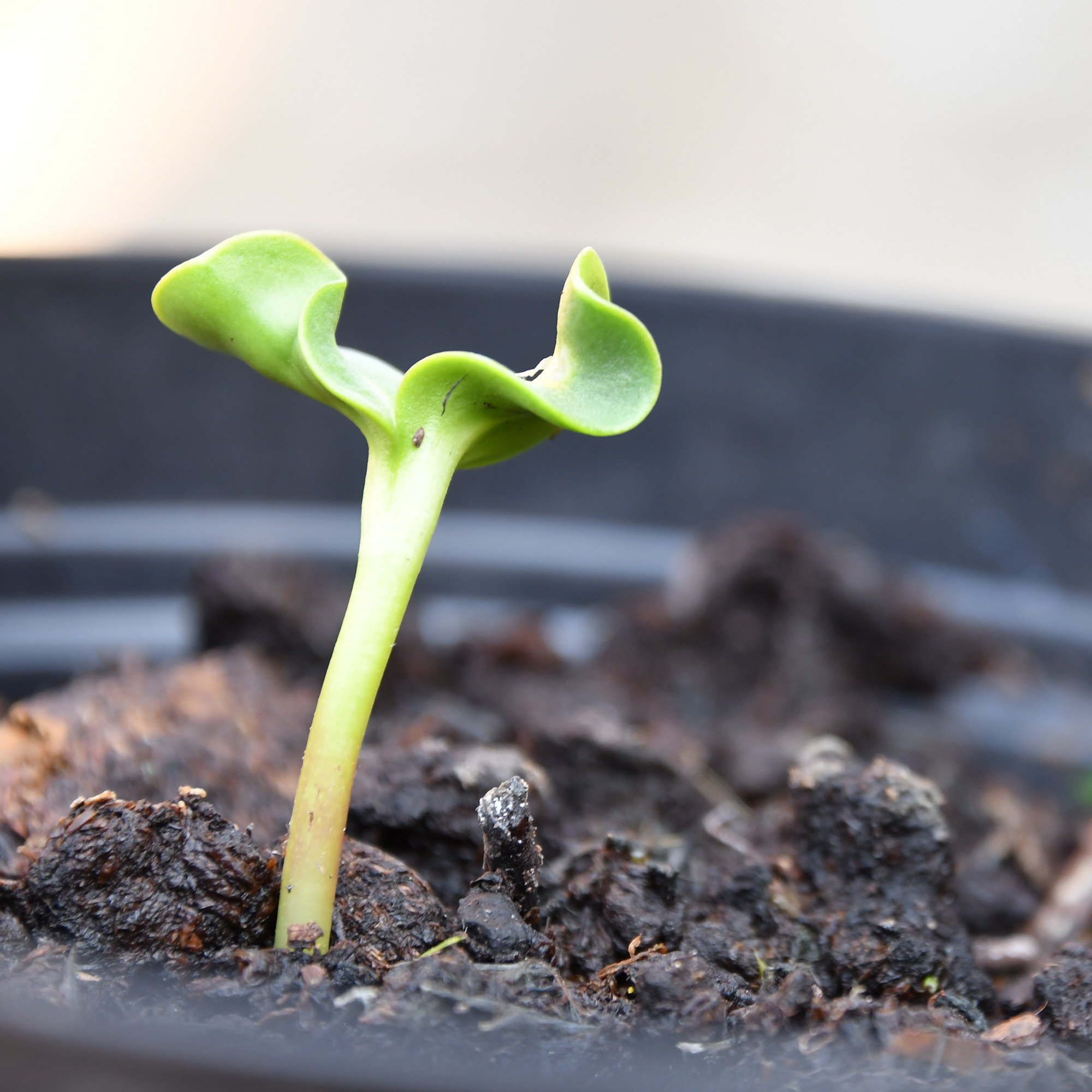
Once you have your seedlings, you are ready to get planting. Depending on whether you choose to plant your propagated sunflower seeds in a container or the ground, will determine how you proceed. But in both instances you’ll need to make some space for them to grow.
‘If growing in a pot, it needs to be large enough to support a big, hungry plant,’ asserts Angela Slater, gardening expert at Hayes Garden World. ‘Place some well-rotted farmyard manure in the bottom of the pot and top up with good-quality peat-free compost. Tub and basket compost would be ideal as it contains fertiliser and a water retention gel which helps stop the compost drying out.’
‘If you are growing one of the giant sunflowers in a container, it needs to be at least 18 x 18ins.’ Alternatively, ‘if growing in the ground, enrich the soil with well-rotted farmyard manure, good quality multi-purpose or home-made compost; all these will add humus and retain moisture. Add a handful of general purpose fertiliser and fork lightly into the soil.'
When it comes to watering the seeds, you’ll want to keep the soil moist but you don’t want to overwater it to the point where the soil becomes waterlogged. It is, however, important to ‘water the newly divided plants thoroughly and keep them well-watered until they establish themselves,’ affirms William from Sutton Manor Nursey.
How to propagate sunflowers from cuttings
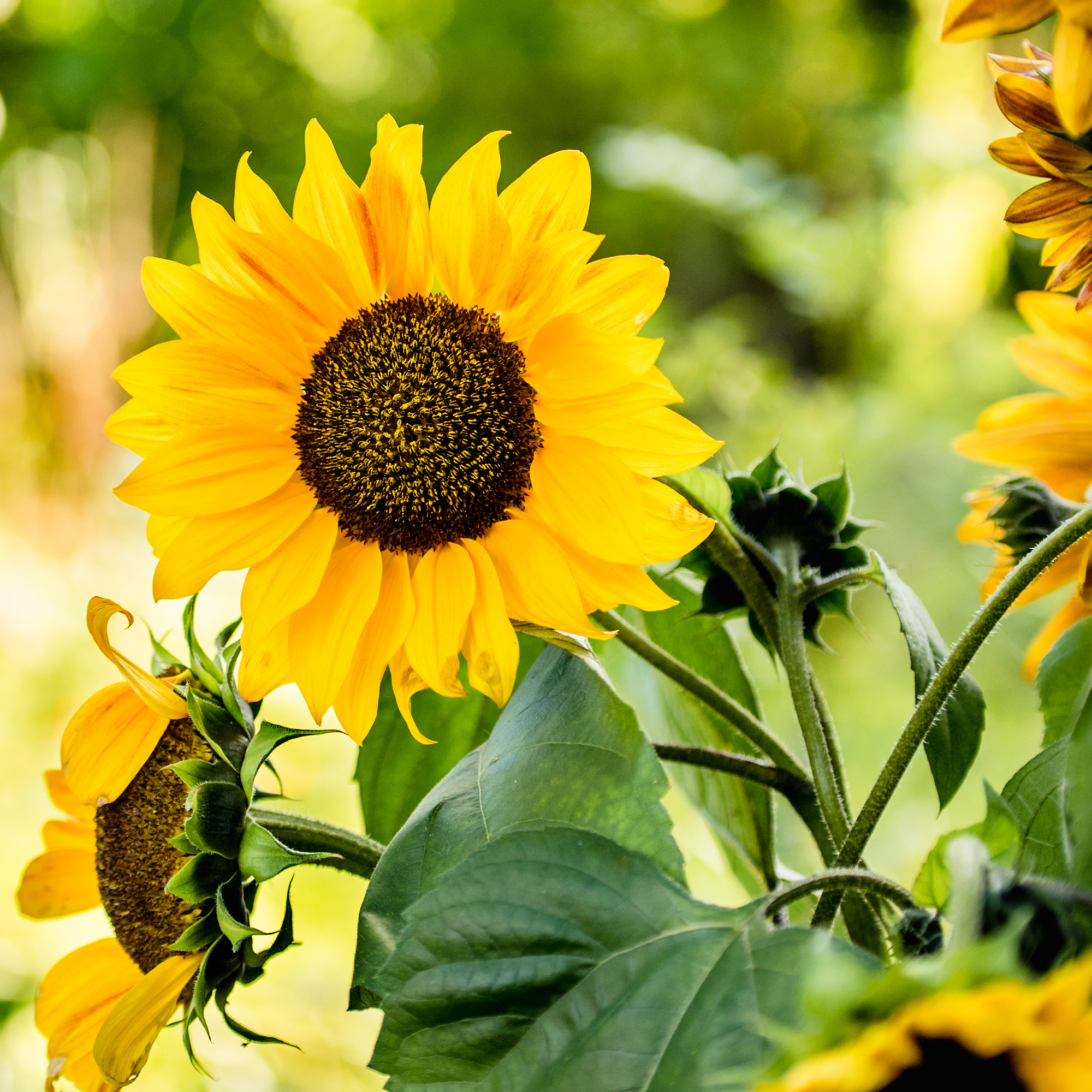
Propagating sunflowers by division – taking cuttings from existing sunflower plants – is possible, if not quite as popular a method. It's more common for propagating peonies, lavender and aloe vera.
‘Firstly, you need to dig up an established sunflower plant, ideally one that has multiple stems. Then you have to carefully separate the plant into smaller sections, making sure each section has some roots and stems,’ advises nursery owner William.
You’ll need a cutting that is 4-6 inches long with a healthy stem and mature leaves. Cut the stem at 45 degrees below the leaves and plant in a mixture of compost and soil.
After watering it well, you’ll want to keep the cutting in a shaded spot for the first few days, before moving it into the sun. As with other plant cuttings, you can use a rooting powder to help speed up the process.
Adding support
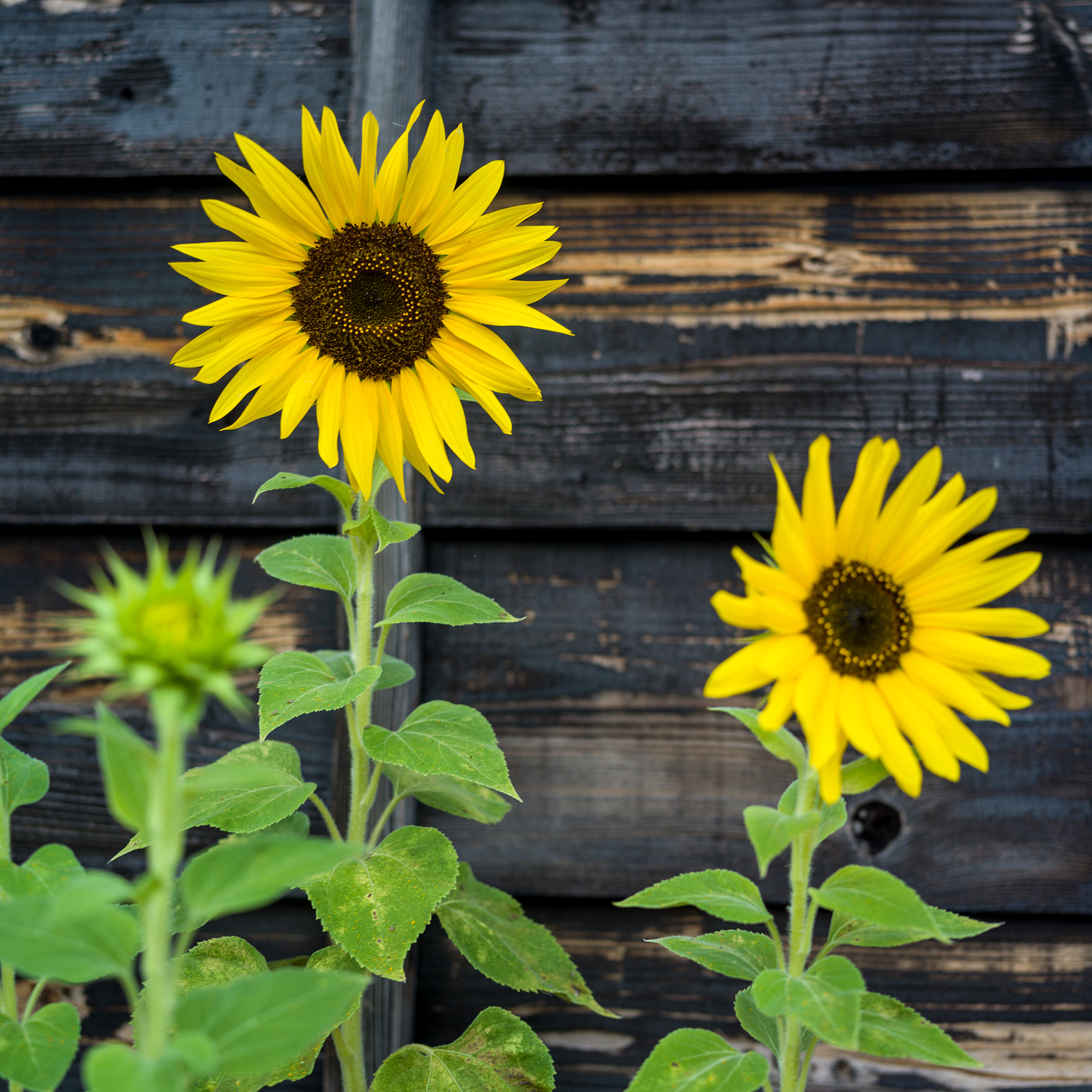
‘Herbaceous sunflowers will need some support in the form of canes and string, metal circular supports or twiggy sticks,’ suggests Angela from Hayes Garden World.
‘Giant sunflowers will need an individual cane.’ If you’re hoping to break some records with the height of your sunflowers, you can even allow your blooms to grow against the side of your house, where you can attach them to the wall when they outgrow the cane.
Where should you position sunflowers?
As sun-loving flowers – ‘sunflowers' flower heads actually track the movement of the sun (Heliotropism) when they are young, but stop doing this once they are full of seeds,’ confirms Steve Chilton, garden expert at LeisureBench – they require between six and eight hours of sunlight each day. Because of this, you’ll want to choose a place that gets an adequate amount of sun.
Sunflowers can also grow tall and wide, with some even reaching around six-foot in height, so you'll want to place them somewhere where they will be uninhibited.
However, since they are a relatively delicate plant that is susceptible to damage in windy weather, ‘a spot near a fence, wall, or other tall plants that can offer then protection could prove beneficial’, says William from Sutton Manor Nursery.

Ellis Cochrane has been a Freelance Contributor for Ideal Home since 2023. Ellis has been writing about homes, interiors and gardens for four years now, with her also contributing to House Beautiful, Country Living, Expert Reviews, Real Homes and Stylist.